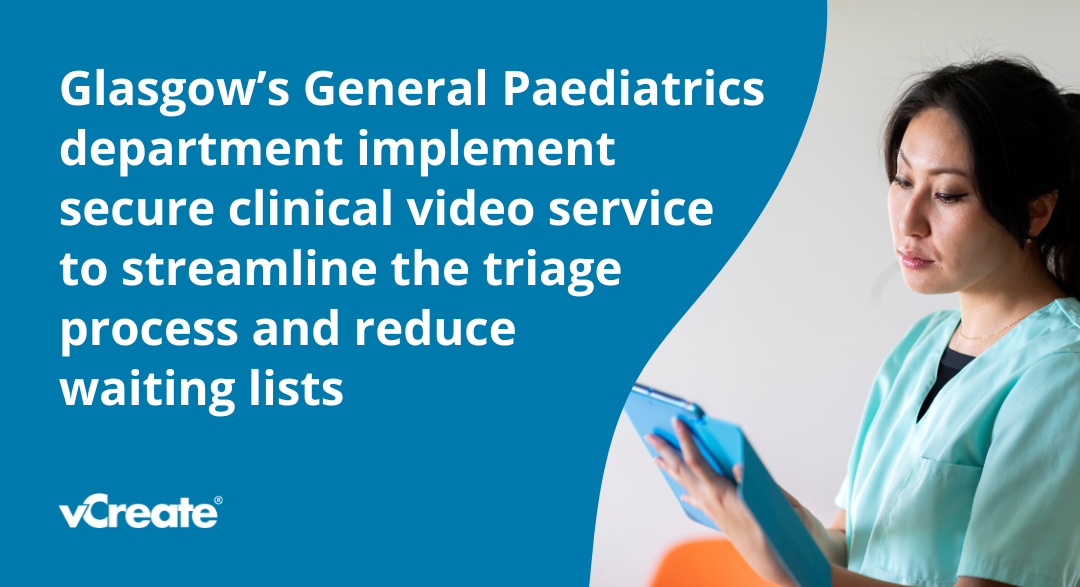Glasgow’s General Paediatrics department implement secure clinical video service to streamline the triage process and reduce waiting lists
13 February 2024

The challenge many General Paediatric services face is optimising and expediting patient pathways to improve service flow. Patients are referred to General Paediatrics by Primary Care and Emergency Departments and it can be difficult to ascertain the most appropriate patient pathway from written referrals alone.
In search of a transformative solution, the General Paediatrics team at Glasgow’s Royal Hospital for Children explored whether an existing clinical video service, vCreate, could be adapted to facilitate the sharing of patient videos, photos and data with clinical teams to help remotely triage and more rapidly determine appropriate patient pathways.
When reviewing patient referrals, clinicians invite parents and carers to upload smartphone-recorded videos and photos of their child’s symptoms to the secure cloud-based system, alongside providing answers to a series of questions for review.
Dr Allison McKie, Consultant in General Paediatrics for NHS Greater Glasgow and Clyde (NHSGG), said: “Videos and photos can be very useful in assisting diagnosis. When vetting patients, having the option to request visual examples of a child’s signs and respond to them in real-time has been hugely beneficial. Being able to share videos and photos with colleagues, both within our team and with subspecialties is also really helpful.”
“The system also allows us to store and classify the videos in the Electronic Patient Record.”
By gaining remote access to patient videos and photos, vCreate has allowed the team to reduce patient waiting times, unnecessary appointments and investigations and prevented over 2,000 miles in unnecessary patient journeys.
Consultant in General Paediatrics for NHSGGC, Dr Iona Morgan said: “A quality improvement report on the service revealed that videos assessed through vCreate have a significant impact on patient trajectories. For example, it helped us identify that in 28% of cases we were able to reassure families that they did not require an appointment. 23% of patients were redirected to a more appropriate service, reducing the time taken for them to be seen by the most appropriate clinician.”
Glasgow’s Royal Hospital for Children continues to utilise the service to streamline the patient pathway.
Read the full case study here or email us to request a demo.
